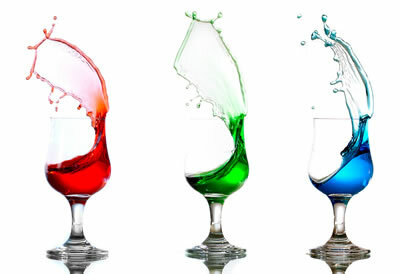Liquid State Characteristics
Chemistry / / July 04, 2021
In liquids, the molecules of the substances meet with a weak cohesion, which allows the molecules of these substances to slide over each other, so that they that they cannot maintain a stable form while they are in this state of matter, which gives them the peculiarity of being able to adapt to the container in which they are.
The liquid state is one of the states of matter in the universe, along with the state solid state, the gaseous state, the plasma state and the so-called Bose-Einstein condensates and Fermi-Dirac.
Characteristics of the liquid state:
The characteristics of the liquid state are (explained later):
- Found in nature and daily life
- Weak cohesion
- Viscosity
- Incomprehensibility
- Diffusion
- Solubility
- Vaporization and solidification
The liquid state found in nature and in our daily life
There are thousands of liquid substances in nature and in our daily life, for example some compounds are liquid and solutions such as sea water, blood, milk, wine, fruit juice and various liquids that contain a wide variety of dissolved substances such as chlorine used for cleaning or automotive fuel (trucks, airplanes, cars, ships, etc.).

Weak Cohesion
The molecules of the liquids present a weak cohesion, it is what keeps the molecules united to each other avoiding the dispersion of the molecules so that they can slide over each other, which favors their ability to adapt to the containers where they are contained, and have little resistance (almost zero) to changes so.
Viscosity
Viscosity is one of the properties shared by liquids and other fluids, viscosity is the property that some substances possess where its molecules "rub" against other molecules causing resistance to the uniform movement of the mass of the substance to oppose liquid. The degree of viscosity depends on the type of liquid in question and the substances dissolved in it. he, for example blood has a higher viscosity than water, and in the same way other substances liquid.
Incompressibility
Incompressibility is one of the characteristics of liquids, which is opposed to the compressibility, that is, it is the opposition that the molecules of a liquid present to being compressed. This is because the molecules of a liquid are not as far apart as is the case of gases (where there is greater space between molecules), and also preserve the cohesion between their molecules, which prevents them from being compressed between Yes.
Diffusion
Diffusion is the property of liquids that allows them to fuse with other substances liquid, is what happens when sugar water is added to plain water, allowing the fusion of both parts.
Solubility
Solubility is the maximum capacity that a solute has to dissolve in a solvent at a certain temperature, for example salt or sugar dissolve easily in water liquid at room temperature, in the same way it happens with other substances in other liquids such as acetone and others, where it can vary depending on the temperature or pressure existing.
Vaporization and Solidification
It is one of the qualities that liquids present depending on the temperature to which they are subjected, at low temperatures they tend to solidify while at high temperatures they tend to vaporize, this is what happens for example in the case of water that at low temperatures turns into ice and at high temperatures into water vapor, which changes the density of the molecules, in a piece of ice the water molecules become compress while in steam the space between them is greater, this is reversed when the medium changes from heat to cold or vice versa in each case, respectively.
It may interest you:
- Solid state characteristics.
- Gas characteristics.
